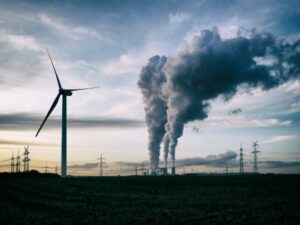Gas plays a significant role in South Africa’s energy transition, according to Prashaen Reddy, a partner at Kearney, amidst the call for public input on a draft Gas Master Plan released at the end of April.
Reddy highlights recent gas discoveries in Southern Africa, particularly in Mozambique, South Africa, and Namibia, which offer opportunities to harness indigenous resources for industrialization, social development, and economic growth. Currently, the gas industry employs at least 70,000 people and contributes between R300 billion and R500 billion annually to South Africa’s GDP through local gas supplies. “To sustain and expand the industrial base, few alternatives are as economically viable as gas for energy-intensive industries. Without a viable gas solution, industrialization may further decline,” warns Reddy. He also underscores the importance of gas-to-power projects in stabilizing the power sector as South Africa aims to diversify its energy mix away from a coal-dominated system, in line with the draft Integrated Resource Plan 2023. “Our research on balancing energy security with sustainability indicates that natural gas is pivotal in the global energy transition. To support a cleaner energy mix, intermittent reliance on cleaner hydrocarbons, such as natural gas, is necessary for energy security until renewable or nuclear capacities, or other baseload technologies, can be developed and deployed,” Reddy explains.He emphasizes that natural gas is the cleanest fossil fuel and is suitable for peak generation shaving and baseload provision. It also complements variable renewable energy sources due to its operational flexibility and lower capital costs.
However, Reddy acknowledges that natural gas still emits greenhouse gases (GHGs) and is constrained by insufficient infrastructure. He stresses the importance of mitigating GHG emissions from natural gas production and use through carbon capture, utilization, and storage. Addressing the critical lack of gas infrastructure requires substantial international and regional financial investments, Reddy notes. Despite the challenges, he expects financiers will struggle to decisively withdraw funding from hydrocarbon projects due to their commercial viability, market demand, and medium-term returns. The global energy transition cannot abruptly eliminate hydrocarbons, which still constitute over 80% of the world’s energy mix. “Gas will play a crucial role as a transitional hydrocarbon, providing energy security and reducing environmental impact until renewable and nuclear capacities are established,” Reddy concludes.






